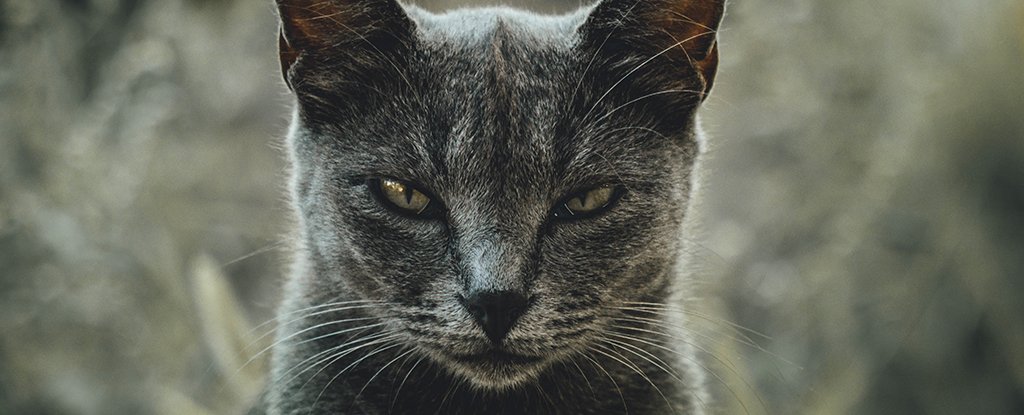
What is your cat thinking? Scientists have come up with a questionnaire that might give you an idea of where your cat fits in on the model of psychopathy.
The model measures levels of boldness, meanness, and disinhibition in order to assess overall psychopathic tendencies. Normally, the test is for humans, but it's being applied to cats.
You'll be given a measure for your pet's level of psychopathy after you've completed the survey. The team hopes that knowing this score can improve the relationship between humans and cats.
"Our cats and the differences in their personality inspired us to start this research," said Rebecca Evans, a psychologist from the University ofLiverpool in the UK.
I am interested in how owner perception of psychopathy in their cat affects the relationship between them and their cat. My cat Gumball can be quite vocal, and he can also be very excited.
Information about how adventurous your cat is when exploring, how it reacts to danger, how it responds to other cats, whether or not it needs constant stimulation, and how well it follows house rules are all included in the questionnaire.
There are related behaviors, including aggression towards new people, and reactions to being petted. You can mark your cat on a scale of "does not describe my cat" to "describes my cat extremely well".
The relationship between the cat and the owner is one of the factors that are included in the test.
You can work out your cat's score for psychopathy from a total of 46 responses. Psychopaths can appear normal and charming on the surface, but they are often characterized by a lack of empathy and a tendency to manipulate others.
"It is likely that all cats have an element of psychopathy as it would have once been helpful for their ancestors in terms of acquiring resources," Evans said.
The study is intended to give us a better understanding of our cats. Those that score higher for boldness might benefit from spending more time with scratching posts or climbing obstacles.
The research team is hoping that a psychological study like this can help identify unwanted behaviors in cats, so owners can perhaps make adjustments to their environments or training accordingly.
The researchers were able to tease out some patterns from the volunteers who have already answered the questions after studying the relationships between 2,042 cat owners and their pets.
The researchers wrote that meanness and boldness predicted a lower quality relationship.
The Journal of Research in Personality has published the research.
